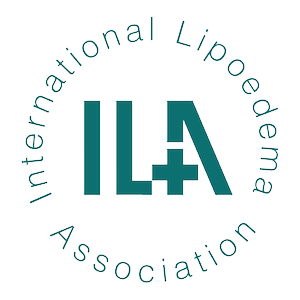Jan Weiss
PT, DHS, CLT-LANA
Noninvasive Vascular Tests: A Must-Know for Every CLT
Saturday, May 4, 11:00am – 11:30am
Lymphedema therapists are commonly referred patients with edema of unknown origin. Many of these patients have unidentified vascular conditions which may contribute to their edema and could be a contraindication for treatment. It is essential that therapists have an understanding of differential diagnosis to be able to accurately identify the source of the edema, refer for proper medical management, and perform the appropriate treatment for optimal and safe intervention. Using case studies, this presentation will review vascular anatomy and pathophysiology; describe signs, symptoms, and associated risk factors of arterial and venous impairments; and explain how some vascular conditions may impact patient care provided by lymphedema therapists. A review of clinical tests helpful for vascular screening will also be provided.
- Identify risk factors associated with arterial and venous insufficiency and deep vein thrombosis.
- Compare differences in clinical signs and symptoms between arterial and venous insufficiencies.
- List 3 clinical tests for screening for arterial insufficiency.
- Explain the role of compression in the treatment of venous insufficiency and post-DVT cases.
Compression therapy in mixed ulcers increases venous output and arterial perfusion. Mosti G., Iabichella ML, Partsch H. J Vascular Surg. 2012;55:122-128.
Healing of an arterial leg ulcer by compression bandaging: a case report. Sanchez C, Partsch H. J Wound Care WUWHS Supplement 2017;26(2): S18-22.
Role of physical therapists in the management of individuals at risk for or diagnosed with venous thromboembolism: Evidence-based clinical practice guideline. Hillegass E, et al. Phys Ther. 2016; 96(2): 143-166.
Intermittent pneumatic compression devices- physiological mechanisms of action. Chen AH, et al. Eur J Vasc Endovasc Surg. 2001; 21: 383-392.
Effect of elastic compression stockings on venous hemodynamics during walking. Ibegbuna V, et al. J Vasc Surg. 2003;37(2): 420-425.

Jan Weiss is a 1977 graduate of Indiana University and completed her Doctor of Health Science degree from the University of Indianapolis in 2010. She has worked as a physical therapist at numerous locations in the United States and Germany, as she and her family often moved during the years her husband served in the military.
Jan moved to Springfield, Missouri in 1994 to continue her career in physical therapy in Outpatient Rehabilitation at CoxHealth. After receiving her MLD/CDT certification in 1996, she established the Lymphedema Clinic at Cox and currently serves as the Lymphedema Resource Therapist for her hospital, while treating a variety of patients with edema and lymphedema.
Her professional interests include clinical research and teaching. She has presented studies at national and international lymphedema conferences, has taught for Klose Training since 2000, and is on the physical therapy faculty at Missouri State University. Professional accomplishments include developing the Lymphedema Life Impact Scale (LLIS), a validated quality-of-life outcome measure used in clinics across the country. Additionally, she has authored and co-authored numerous research articles in the field of lymphedema.
Jan received her CLT-LANA certification in October 2001 and served on the Lymphology Association of North America (LANA) Board of Directors from 2003-2009.
 Jan Weiss
Jan Weiss
 Jan Weiss is a 1977 graduate of Indiana University and completed her Doctor of Health Science degree from the University of Indianapolis in 2010. She has worked as a physical therapist at numerous locations in the United States and Germany, as she and her family often moved during the years her husband served in the military.
Jan Weiss is a 1977 graduate of Indiana University and completed her Doctor of Health Science degree from the University of Indianapolis in 2010. She has worked as a physical therapist at numerous locations in the United States and Germany, as she and her family often moved during the years her husband served in the military.




